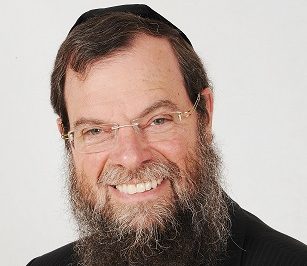
Parshot/Festivals

Here comes the judge
Rabbi Yossy Goldman, Sydenham Shul
Interestingly, it occurs in the first week of Elul, the month in which we are to prepare in earnest for the days of judgment ahead, Rosh Hashanah and Yom Kippur.
There are, however, some significant differences between earthly judges of flesh and blood and the heavenly judge. In the earthly court, if after a fair trial, a defendant is found guilty, then there really is no room for clemency on the part of the judge. The law must take its course. The accused may shed rivers of tears, but no human judge can be certain if his remorse is genuine.
You see, a human judge makes their decision on what the eye can see. The misdeed is seen to have been committed. The remorse, who knows? Perhaps the accused is only acting contrite. The Supreme Judge, however, does know for a fact whether the accused genuinely regrets his actions, or is merely putting on an act. Therefore, He alone can forgive. That is why in heavenly judgments, teshuvah (repentance) is effective.
The Maharal of Prague gave another reason. Only G-d can judge the whole person. Every one of us has good and bad to some extent. Even those who have sinned may have many other good deeds that outweigh the bad ones. Perhaps even one good deed was of such major significance that it alone could serve as a weighty counterbalance.
Our goal is to emulate the heavenly court. We should try to look at the totality of the person.
A new Rabbi came to town, and the very same week, Chaim, the town drunkard, resident liar, and horse thief, died. The family approached the Rabbi and asked him to offer a eulogy at the funeral. Only after the Rabbi agreed did he discover what an unsavoury character he was going to have to praise. So, nu, what did he say? He told it as it was. “Chaim was fond of a drink or two, and he liked horses, even if they weren’t his own. At times, Chaim may even have used language that was not entirely appropriate. And, perhaps he wasn’t always fanatical about telling the truth. But I want you to know that compared to his late brother, Chaim was an absolute saint!”
A teacher once conducted an experiment in class. He held up a white plate and showed it to the class. In the centre of the plate was a small black spot. He asked the class to describe what they saw. One student said he saw a black spot. Another said it must be a target for shooting practice. A third suggested that the plate was dirty or damaged. Whereupon the teacher asked, “Doesn’t anyone see a white plate?”
Why do we see only the dirt? Let us learn to find the good in others. Nobody is perfect, not even us.




